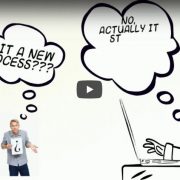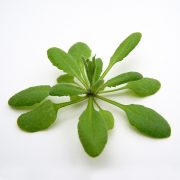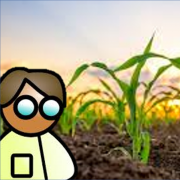Informational Interview with Dr Eloy Caballo Ponce
By Ángel Vergara Cruces, Conviron Scholar
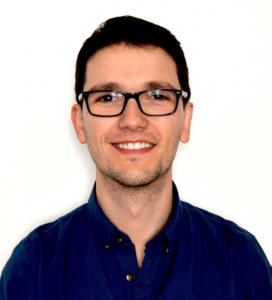 I interviewed Dr Eloy Caballo Ponce, technician in the phytopathology department at the seed company Rijk Zwaan. During our conversation, we talked about academia, industry and career paths for life science graduates.
I interviewed Dr Eloy Caballo Ponce, technician in the phytopathology department at the seed company Rijk Zwaan. During our conversation, we talked about academia, industry and career paths for life science graduates.
The first thing I wanted to ask you is to summarise your career path: how did you arrive where you are today?
I did all my primary and secondary school education in Seville, where I am from. I studied Biotechnology in the Pablo de Olavide University, a five years “licenciatura” [before the Bologna process, undergraduate degrees in Spain known as “licenciaturas” had a duration of 5 years]. Then I did a master in Córdoba in Food and Agriculture. After that, I came here to Málaga to do the PhD. I finished my PhD last year and did a one-year postdoc, until I decided to switch to industry.
And how did you decide that you wanted to switch to the industry?
From the very beginning of my thesis: I realised, even though I like basic science, I don’t like the inner workings of academia. Some projects that could be developed are stalled and others are allowed to advance because of certain interests, it is not truly a pursuit of discovery. And then, also [there is] such a high pressure to publish, which leads to the publication of erroneous data, which in turn leads others to make wrong conclusions or to have results contradicting the literature. All of that is quite discouraging.
Furthermore, the job prospects in Spain were not very promising. Today is not as ten years ago, when you could go abroad for a postdoc and upon your return get some job security. Now, If you go abroad, it is difficult to come back.
All of that, and the fact that I had made an internship in a company and thus tasted the private sector, lead to my decision. I had a very clear idea of which type of company I would like to work for. I liked phytopathology and started looking for a job in seed companies. Not only here in Almería but elsewhere in the world, I even made interviews for Brazilian companies. In the end, it was Rijk Zwaan in Almería which bet on me, and when I got the opportunity I went on to work with them.
And when you started that search, did you do it on your own or did you get any kind of guidance?
I had a series of requisites for my ideal job: I wanted a powerful international seed company, that could allow me to interact with companies in other countries, travel and to have a career plan within it. I had 5-6 top seed companies whose webpage I checked regularly to see job positions they were offering. And also, I got updates via LinkedIn and other media. All of this, I did it by myself, I did lack that career orientation from the university. My impression is that they provide information mainly on the academic path, but do not take into account other alternatives.
However, it is true that there are now some groups on social media focusing on alternative non-academic careers, which provide webinars, courses, they visit colleges…but it is still at a very small scale. When I initiated my job search, I also started to follow these alternative channels.
Eventually, when I started to get desperate to find a job after several interviews -my contract at university was about to finish-, I started to use my contacts here at the university. Even if we often do not realise, “La Mayora” [the institute where Dr Caballo did his doctoral research] is a leading institute in Agricultural Sciences and is highly regarded by seed companies in Spain, as are other well-known places such as Wageningen or Davis. I contacted Enrique Moriones, the director of the institute, and he sent my CV around and contacted former PhD students from the institute now working in seed companies.
You have to be proactive, if you know where you want to end up, you have to play your cards right.
And I also wanted to ask you what does your job entail exactly?
My company is dedicated to classic plant breeding in horticulture. As genetic engineering techniques are not allowed [in the EU], characters of interest are selected in massive screenings and these in turn are introduced in the commercial variety in question through introgression. I work in the Phytopathology Department, whose focus is to improve the resistance to disease in the varieties which we commercialize or will commercialize. And my particular position involves two main roles: on the one hand, I manage all the pathology assays at production scale in Spain, in the greenhouse. This is where the materials previously selected in the lab go. I organize the space, the resources we need, manage the communication with the breeders in the Netherlands, monitor the assays are carried out properly and perform evaluation of the symptoms… So it is both a scientific and managerial role. And on the other hand, the less time consuming part is to design a wide range of research projects in pathology that can benefit the company.

How is the working culture at Rijk Zwaan?
The truth is you can produce seeds treating your employees in many different ways: in Rijk Zwaan the culture is very horizontal, very close.
You have to take this with a grain of salt, but I’d say Rijk Zwaan doesn’t hire a technical profile, but rather a concrete human profile. In the end, they are going to give you the technical training you may need for your work. They prefer a person who is able to work in a team, even if it is not that bright, rather than a very skilled person who is too individualistic.
Also, the company takes care to avoid stagnation of its employees. If you feel stuck at some point, you can go to the R&D director and she will give you something to motivate you, as indeed there is a ton of projects within the company!
For a student who is approaching graduation, which skills should she focus on? How can she direct her career towards the seed industry?
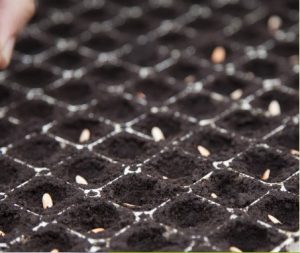 For someone who just graduated, my advice would be to establish a first contact with the seed company in question, maybe through an internship. If you work for a company and prove your worth, if you show a series of skills, that you can integrate in a team and are a valuable person… you “sell” yourself and, in this way, you may be considered for a future open position.
For someone who just graduated, my advice would be to establish a first contact with the seed company in question, maybe through an internship. If you work for a company and prove your worth, if you show a series of skills, that you can integrate in a team and are a valuable person… you “sell” yourself and, in this way, you may be considered for a future open position.
From my point of view, the person who has just graduated, who probably just knows that she prefers agriculture over medicine, but may not have chosen and specific field, should direct her career towards Agriculture in some way, be it a master, a second degree, whatever… And in the end, it will sort itself out, your decisions will guide your way, if you keep focused on your goal.
Any further comments?
Yes! From what I have seen, there are a lot of people who do their bachelor thesis, master thesis or even PhD all in the same lab… My impression is that some people do not stop to think about whether they actually want to pursue this [academic] path… There are lots of different alternatives, not just the private sector, but also science communication, patent law…there is very wide range of possibilities available for a PhD. Often you have to stop, think about what you really want in life and start directing your professional career in that direction.



